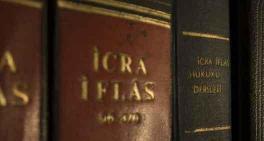Court upholds Phoenix law over same-sex wedding invitations
Legal Compliance
An Arizona appeals court on Thursday upheld a Phoenix anti-discrimination law that makes it illegal for businesses to refuse service to same-sex couples because of religion.
The ruling comes days after the U.S. Supreme Court sided with a Colorado baker who refused to make a wedding cake for a same-sex couple. The high court found Monday that a Colorado civil rights commission showed anti-religious bias when it ruled against Jack Phillips for refusing to make the cake at his Masterpiece Cakeshop.
The decision, however, did not address the larger issue of whether a business can invoke religious objections to refuse service to gay and lesbian people.
In the Arizona case, the state Court of Appeals sided with the city in a lawsuit first brought in 2016 by a wedding invitation business, saying the ordinance is constitutional and does not violate freedom of religion or speech.
"We have previously found that eliminating discrimination constitutes a compelling interest," Judge Lawrence Winthrop wrote, adding that "antidiscrimination ordinances are not aimed at the suppression of speech, but at the elimination of discriminatory conduct."
The court said if Joanna Duka and Breanna Koski, owners of Brush & Nib Studio, "want to operate their for-profit business as a public accommodation, they cannot discriminate against potential patrons based on sexual orientation."
Attorney Jonathan Scruggs of Alliance Defending Freedom, who represented the women, said they intend to appeal the decision to the Arizona Supreme Court.
Related listings
-
Supreme Court addresses question of foreign law in US courts
Legal Compliance 06/16/2018The Supreme Court says United States federal courts should consider statements from foreign governments about their own laws but do not have to consider them as binding.Justice Ruth Bader Ginsburg wrote for a unanimous court that federal courts shoul...
-
MMA star Conor McGregor heads to court for melee charges
Legal Compliance 06/13/2018Mixed martial arts star Conor McGregor is due in court for a hearing on charges stemming from a backstage melee that was caught on video.He's expected to be joined in Brooklyn on Thursday by friend and co-defendant Cian (KEE'-uhn) Cowley.Video showed...
-
Gamers in court for first time after Kansas 'swatting' death
Legal Compliance 06/13/2018Two online gamers whose alleged dispute over a $1.50 Call of Duty WWII video game bet ultimately led police to fatally shoot a Kansas man not involved in the argument will make their first appearances in court Wednesday in a case of "swatting" that h...

Car Accident Lawyers in New Rochelle, New York
If you have gotten in a car accident, it could seriously change your life. Whether the accident was caused by the other party’s fault or a fault of your own, you’ll want to to make sure that you are ready to prepare yourself for any cases that might follow.
Immediately following any type of car accident, it is important to take certain steps to ensure that the courts will treat you with respect and fairly. First, assess your mental and physical condition. Make sure right after the accident, you document any information regarding the accident and situation, it can be of great help later on.
You’ll want to make sure that you seek professional help for any medical conditions you may be experiencing. Do not wait to seek medical attention, you’ll want to make sure that you have documented evidence of the injury that was caused by the accident. The amount of treatment is also taken into consideration in every case.




